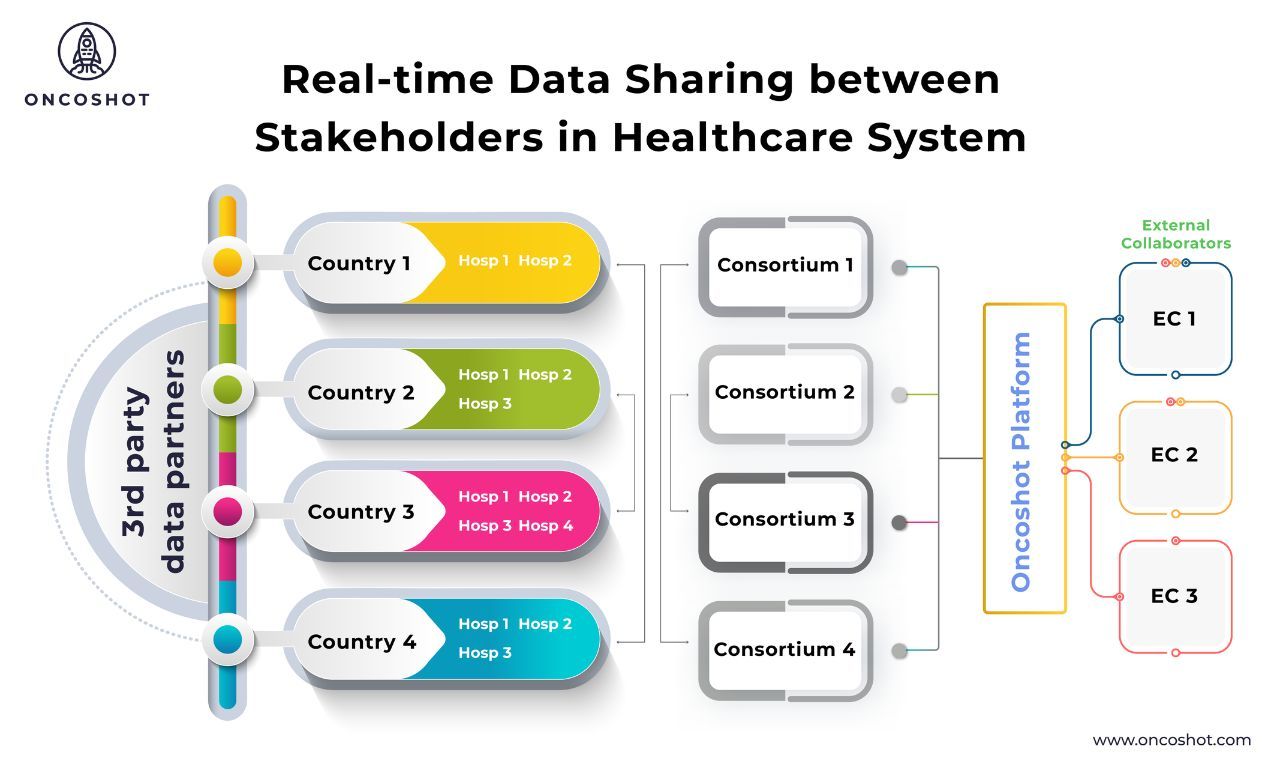Unlocking the Next Frontier: Supercharging Global Research through Tech for Consortia & Networks 🌐🔬
Consortia have an unparalleled power. We’ve known for the longest time that organising the clinical research ecosystem into consortia boosts scale, efficiency and underscores the time-honoured recognition of cross-boundary collaboration. Reflecting on the advent of Web 2.0 – the realm of platforms and networks harnessing technology, it’s quite fascinating that academic leaders have been spearheading #Research 2.0 for decades already!
Despite these advances, the research fraternity hasn’t gotten deep into understanding how it can utilize technology to its fullest to catalyse and expedite research. We’ve taken it for granted that how we conduct multinational consortia and research collaboration is good enough.
Here are the challenges multinational research networks still grapple with:
#Discovery 🎯
1. Sharing insights from local datasets swiftly without requiring patient-level data for central collection and analytics.
2. Projecting the consortium as a unified body, emphasising research leaders and participant hospitals’ skills to external collaborators.
3. Engaging with industry partners to efficiently collaborate on investigator-initiated study opportunities.
#DataManagement 💽
1. Addressing inconsistencies in data capture and management quality across participating centres.
2. Overdependence on a central coordination entity for data management, thereby inhibiting centres’ opportunities to upgrade their data management skills.
3. Utilising slow, inefficient, and potentially insecure methods of patient-level data sharing.
4. Inability to enrich data longitudinally at the hospital level after data centralisation.
5. Absence of appropriate data and user-level controls over data insights from sites to coordinating centres.
#Sustainability 🌳
1. Networks generally lean heavily on funding from the lead organization buoyed by sizeable national grants. This, however, may not be sustainable in the long run.
2. Insufficient foundational infrastructure for efficient, standardised data management.
3. Lack of a robust foundation for longitudinal data collection.
4. Inadequate infrastructure that enables data sharing between either the mode of coordinating centre-to-industry sharing or participating hospital-to-industry data sharing.
Tackling these challenges is the key to unlock the true potential of consortia. Now more than ever, it’s high time we synergise our efforts to overcome these barriers and create a more empowered research environment. We’re excited to be working with consortia across APAC and look forward to sharing new consortia-level partnerships and use cases. Much to be done in this space!🤝
Source: Huren Sivaraj/LinkedIn


